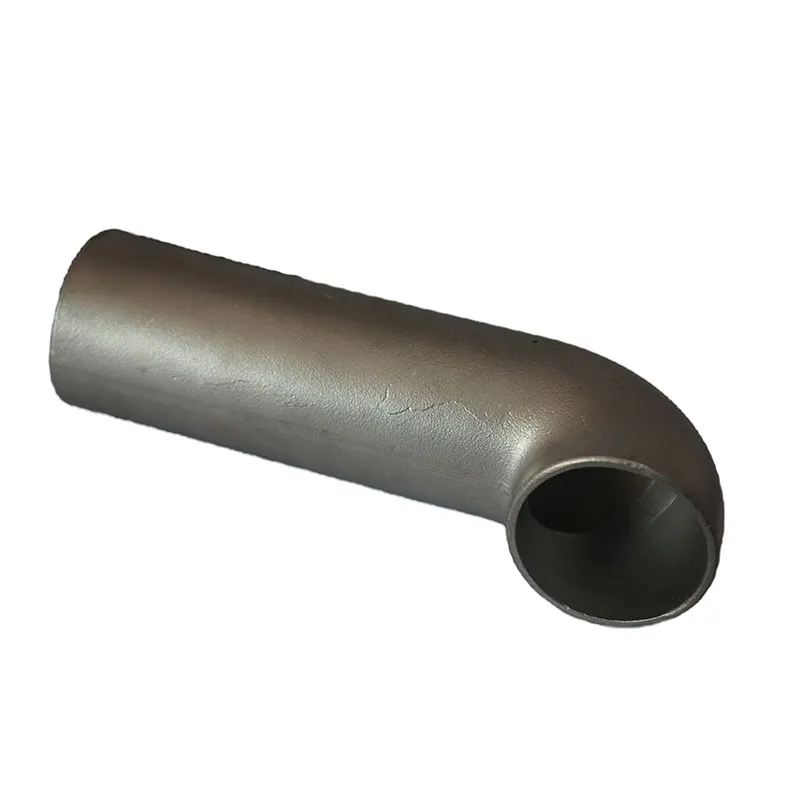Precision Casting Manufacturers for High-Quality Custom Metal Components and Parts
The World of Precision Casting An In-Depth Look at a Leading Precision Casting Factory
In today’s manufacturing landscape, precision casting has emerged as a critical process for producing high-quality components across various industries, including automotive, aerospace, and machinery. Precision casting factories play an essential role in meeting the increased demand for complex parts that require tight tolerances and superb surface finishes. This article delves into the intricacies of precision casting, its advantages, and what sets a leading precision casting factory apart from its competitors.
Understanding Precision Casting
Precision casting, often referred to as investment casting or lost-wax casting, is a process that allows for the creation of intricate and precise metal parts. The method involves creating a wax pattern, which is then coated with a ceramic shell. Once the shell is hardened, the wax is melted away, leaving a hollow cavity that mirrors the shape of the original pattern. Molten metal is then poured into this cavity to form the final component.
This technique is particularly advantageous for producing components with complex geometries and detailed features that would be difficult or impossible to achieve through traditional machining processes. The precision casting process can accommodate a wide range of materials, including various alloys of steel, iron, aluminum, brass, and titanium, making it a versatile choice for many applications.
Advantages of Precision Casting
1. High Precision and Accuracy One of the most significant benefits of precision casting is its ability to produce components with excellent dimensional tolerances. This precision reduces the need for additional machining, saving time and costs.
2. Complex Geometries The process allows for the creation of parts with intricate shapes and features, including thin walls, undercuts, and fine details. This flexibility opens up new design possibilities for engineers and designers.
3. Material Efficiency Precision casting yields less waste compared to traditional forming methods. The processes are designed to utilize raw materials effectively, minimizing scrap and thereby reducing overall production costs.
4. Surface Finish Quality The ceramic shell provides a smooth surface finish, often eliminating or minimizing the need for additional surface treatments. This quality is crucial for components that require high aesthetic standards or specific functional properties.
precision casting factory

5. Scalability Precision casting can be scaled easily, accommodating varying production volumes, from prototypes to large-scale manufacturing runs. This adaptability is essential in responding to market demands.
What Sets a Leading Precision Casting Factory Apart
In a competitive landscape, a top-tier precision casting factory distinguishes itself through several key factors
1. State-of-the-Art Technology Advanced machinery and technology are critical in precision casting. Factories committed to innovation invest in the latest casting technologies, including 3D printing for pattern creation, automated casting lines, and advanced quality control systems.
2. Expertise and Experience A leading factory is staffed with skilled engineers and technicians who possess a deep understanding of the casting process. Their expertise enables them to tackle complex projects and provide valuable insights during the design phase, ensuring manufacturability and cost-effectiveness.
3. Quality Assurance Rigorous quality control procedures are fundamental in a reputable precision casting factory. This encompasses everything from material selection to the final inspection of the cast parts. By adhering strictly to industry standards and implementing ISO certification processes, these factories ensure that their products meet the highest quality benchmarks.
4. Customer Collaboration Engaging closely with customers throughout the design and manufacturing process is vital. A proactive approach allows factories to understand specific requirements, which leads to tailored solutions and improved customer satisfaction.
5. Sustainability Practices As industries increasingly focus on reducing their environmental footprint, leading precision casting factories adopt sustainable practices. These include recycling materials, optimizing energy use, and minimizing waste generation during production.
Conclusion
Precision casting is a formidable process that continues to evolve, driven by technology and growing industry demands. With the advantages of high accuracy, design flexibility, and efficiency, it has become an indispensable part of modern manufacturing. As industries look for reliable partners in production, leading precision casting factories stand out not only for their technical capabilities but also for their commitment to quality, service, and sustainability. These factors together help ensure that they remain at the forefront of the precision casting sector, ready to meet the challenges of today and the innovations of tomorrow.
-
OEM Sand Cast Pump Valve Fittings - Baoding Hairun | Precision Engineering, CustomizableNewsJul.30,2025
-
OEM Sand Cast Pump Valve Fittings - Baoding Hairun Machinery And Equipment Trading Co., Ltd.NewsJul.30,2025
-
OEM Sand Cast Pump Valve Fittings - Baoding Hairun Machinery And Equipment Trading Co., Ltd.NewsJul.30,2025
-
OEM Sand Cast Pump Valve Fittings - Baoding Hairun Machinery|Precision Engineering&Fluid ControlNewsJul.30,2025
-
OEM Sand Cast Pump Valve Fittings - Baoding Hairun Machinery And Equipment Trading Co., Ltd.NewsJul.30,2025
-
OEM Sand Cast Pump Valve Fittings-Baoding Hairun Machinery And Equipment Trading Co., Ltd.NewsJul.30,2025















